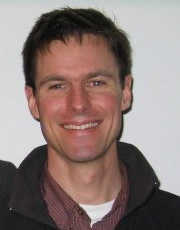Adam Nelson – “Land Grant Universities and the Wisconsin Idea, 1862-1912
October 17th, 7pm, 1111 Genetics/Biotechnology Center, 425 Henry Mall

Adam R. Nelson is Professor of Educational Policy Studies and History at the University of Wisconsin-Madison. He received his Ph.D. in History from Brown University. His publications include Education and Democracy: The Meaning of Alexander Meiklejohn, 1872-1964 (2001); The Elusive Ideal: Equal Educational Opportunity and the Federal Role in Boston’s Public Schools (2005); Education and the Culture of Print in Modern America, co-edited with John L. Rudolph (2010); and The Global University: Past, Present, and Future Perspectives, co-edited with Ian P. Wei (forthcoming, 2012). He is currently writing a book titled Empire of Knowledge: Nationalism, Internationalism, and American Scholarship, 1780-1830. His research has been funded by grants from the National Endowment for the Humanities, the National Academy of Education/Spencer Postdoctoral Fellowship Program, the Charles Warren Center for Studies in American History at Harvard, the Advanced Studies Fellowship Program at Brown, and the Vilas Associate Program at the University of Wisconsin-Madison. He co-directs the “Ideas and Universities” project of the Worldwide Universities Network (WUN).
This week’s talk by Adam Nelson served as a prequel to the emergence of the Wisconsin Idea. He did a great job of starting off his talk by stating an overall goal and some supplemental questions that he hoped to address. The main goal of his talk was to lay the groundwork for why the Wisconsin Idea emerged when and how it did. Adam also hoped to address who should attend universities, which research questions were worthy of pursuing, how universities should or shouldn’t promote social reform, and who is able to choose the answers to the following three topics.
His first focus was on scientific schools and agricultural college that functioned with state support. Interestingly, the agricultural colleges were founded by middle class reformers in larger cities who wanted to teach farmers new techniques. A leader at one of these colleges, Sheffield affiliated with Yale, was Daniel Coit Gilman. He hoped to expand schooling and spent time overseas to visit many, more established scientific schools. He came to the conclusion that the U.S. needed to develop a capacity for research – “we needed to catch up.” Another example of this ambition to ‘catch up’ can be seen in Charles Eliot, a former undergraduate of Harvard who did not have the opportunity to participate in any lab courses. After he graduated, he later became Harvard’s president and vowed to make it a renowned research university.
After the need was realized, the American Civil War erupted and college enrollment decreased drastically. While this disrupted momentum in the pursuit of research, it also prompted a major leap forward. The Morrill Act was enacted in 1862 and allowed money from Western lands to form universities. It is important to note that this land was forcefully seized from Indians – however, this land would now serve as land grant universities that would focus on military, agricultural, and scientific education. Nelson shares that these land grant universities were “the foundation for economic growth after the Civil War and served to reunify the United States.”
Fast forward in Adam’s talk and he begins focusing more on the questions he posed in the beginning of the talk. During a recession as a result of private ownership of railroads, the Regents get a public mandate to get rid of 40% of all university faculty. However, the Regents in Wisconsin defend Ely, who believes that railroads should be owned by the public. This shows a clear step toward progressivism and the Wisconsin Idea. At Stanford, Edward Ross states that he is against immigration from China because immigrants lowered the wages of U.S. workers. When Jane Stanford threatened her endowment if he wasn’t fired, Ross left Stanford for UW! This academic freedom was not guaranteed at the time, but we can see steps in the right direction in Wisconsin.
Adam Nelson was very knowledgeable about the topic he shared and I was impressed with his well thought-out answers to the questions asked at the end. He shares at one point that “one slice of the Wisconsin Idea is to bring research to the world and learn how to use democratic power wisely.” I was happy to learn a bit more about the Morrill Act as it has been brought up in almost all of the talks thus far but I had little knowledge about its impact prior to this week. Kansas State was a university brought up at multiple times throughout the talk, and I’d be interested to know what their school ‘mission’ is, and if there is any relation to our Wisconsin Idea.